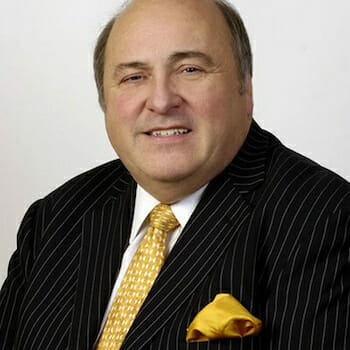
Media
The Josey Wales of Journalism: America Needs More Words of Iron
In today’s world of journalism, journalists have a tendency to use obtuse euphemisms to describe tough problems and most Americans are tired of it. Few reporting the news focus on the issues with an objective perspective and instead, slant the news or in some cases, don’t even report it. Americans expect more.
Most Americans see through this and have lost their respect for journalists who follow the blue-coated, double-tongues of Washington. Credibility across many news channels has diminished because they have taken up the cause to promote the bluecoats and their lies. This has divided the country, yet those who could unify the country have failed to do so.
If we use the movie, The Outlaw Josey Wales, to frame this picture of losing American values, it is almost a perfect analogy of our current political climate.
Josey Wales, played by Clint Eastwood, fought for what he thought was right and did so after his family was killed. He lost everything. After the war (or was it an election?), the call for unity rang hollow.
The victors really didn’t want to live in peace and unity, they wanted to get rid of those who had a different perspective than theirs and just institute their way of thinking. That really was not the principles of how America was founded, but they wanted to claim total victory and end trying to discuss different perspectives before coming to a conclusion or governing decision.
Josey Wales was told to accept the victors’ approach to government and make peace, and he started to, until he found out all they wanted to do is eliminate him and his perspective. His fellow leader, Captain Fletcher, played by John Vernon, sold him out trying to appease the victors and thought to later let him go, but authorities told him to pursue him and terminate Wales.
Little did they know the real spirit of Josey Wales. Wales still wanted what he fought for, peace and the ability to live amongst everyone. Freedom and independence were the foundation of his perspective as well as the foundation of America. Unfortunately, some wanted to squelch that true American spirit.
As the pursuit of Wales takes place, he runs across the gamut of personalities within the country. Each one easily reflects what we have today.
Sim Carstairs, the ferryman, really depicts the “flip-floppers” in Congress. As they slide from one side to the other on the river of opinions and populous perspectives, they sing the right song for the right side just to stay in business and get re-elected. There’s a lot of career ferrymen on both sides in Washington and will sing any song to stay on top of the river or to stay in Congress. More and more Americans are starting to see through them.
Grandma Sarah, played by Paula Trueman, reflects the older people of America. They have seen a lot over time and want Wales to be successful because as Grandma Sarah distrusted the government, so do most older Americans.
The snake oil salesman: This is the bureaucratic agency or private company trying to “sell” the public on some miracle solution that really doesn’t work. There are many in non-elected bureaucratic positions who fit this label. Again, their goal is to sell you on something worthless, but it still costs you in many ways and not just in money. If you remember, Josey Wales had no patience for the snake oil salesman. Many Americans have no more patience for those bureaucrats in government and private companies, who are trying to sell worthless solutions.
The naive settlers going West. Those represent the Millennials and other determined generations moving through life trying to find themselves and new opportunities. They figure they can travel aimlessly, but still reach their destination. They are not as experienced as Josey Wales and are unaware of all the mental and physical obstacles they will face. They wind up realizing they must fight for their freedom.
Lone Watie, played by Chief Dan George, is the old Indian Chief. He is the minority who has been taken advantage of by the false-promising government and has been put into an area to stay pacified. He realizes he has to help Wales in order for himself to live a more free and better life. He sees that realization and follows through. Lone Watie was a real chief who went to Washington in 1861.
Ten Bears, played by Will Sampson, represents our global adversaries. Ten Bears and his followers are out to kill those who have lied to them about treaties but respect the independence of Josey Wales. They respect his willingness to fight and know he is not to be messed with. Unlike the current administration, whatever Josey Wales says, is taken very seriously. American might is not to be messed with. Ten Bears sees that and says Wales speaks with words of iron. Words that cannot be put on paper like those in Washington.
The Outlaw Josey Wales represents the pursuit of freedom, and it appears that Ukrainians must have watched it many times. They want to embrace that independent spirit of Josey Wales, the American spirit of freedom that everyone knows is not free.
Josey Wales represents the true American spirit: “Wanting to live in peace and unity, but not afraid to fight for his or her freedom and independence.” These words have iron.

